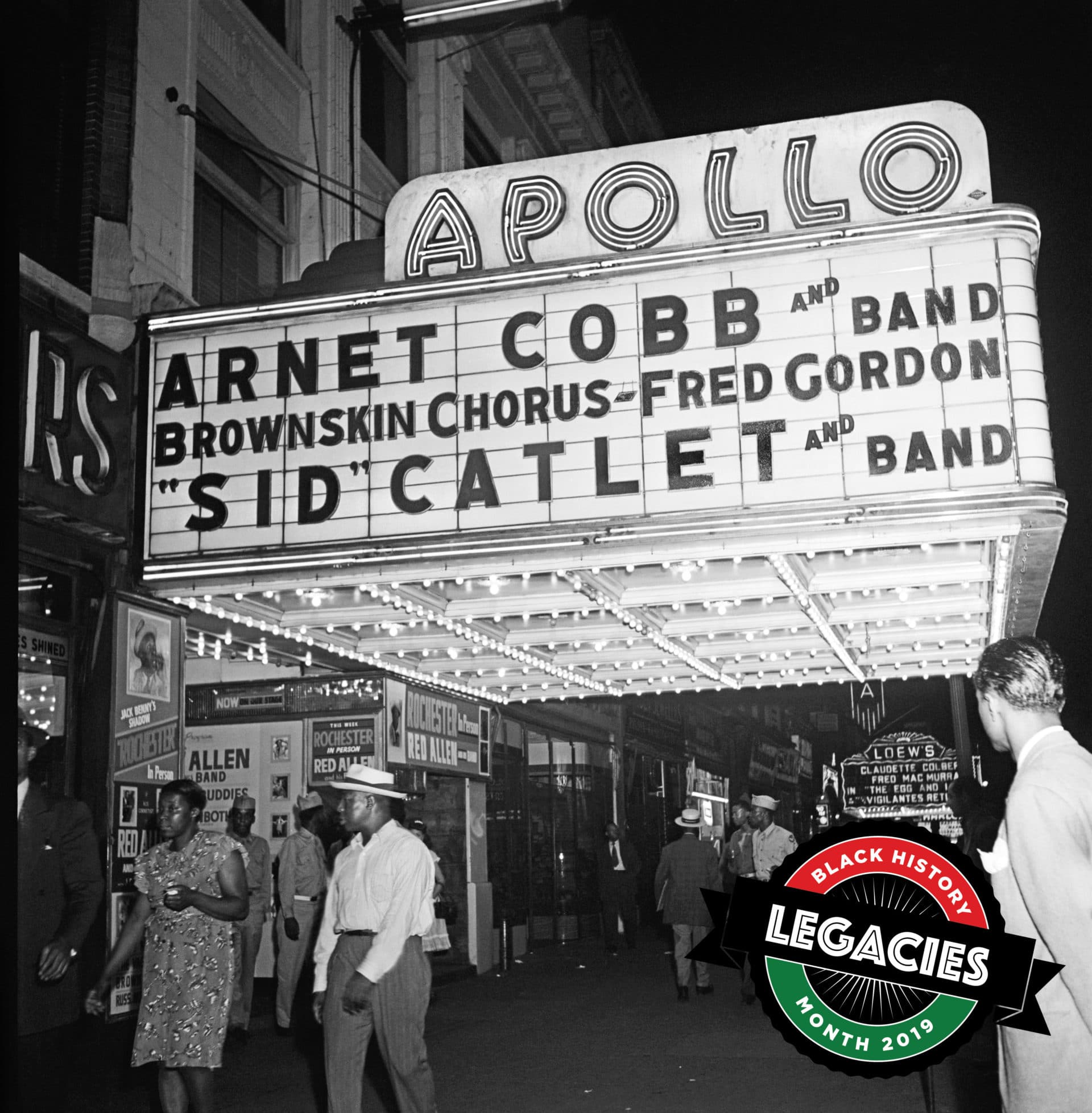Nestled between Adam Clayton Jr., and Frederick Douglass Boulevards, the Apollo Theater in Harlem, New York has claimed its throne as the keeper of Black history for 85 years. Since re-opening its doors in 1934 to cater to the growing talent of African Americans in Harlem, the Apollo Theater has been cultivating, preserving, and elevating Black art. Whether that’s in music, writing, dance or even the art of speaking, no place in this world can be called home, a sanctuary, and the beginning, like the Apollo Theater.
Before becoming the home of Duke Ellington, Billie Holiday or Bruno Mars, the Apollo was a Burlesque Theater. Opening in 1914, Benjamin Hurting and Harry Seamon obtained the lease to the newly built theater, which was owned by Sidney Cohen, and like most of America during that time, forbid the entry and entertainment of African Americans. But in 1933, the mayor began forbidding Burlesque and the theater closed. A year later, Cohen saw the growing population and evolution of African American entertainment in Harlem and began to cater to the growing demand, and from that point on, the rest is history.
One can only imagine what it’s like being in charge of an entity like the Apollo; the responsibility of not only making sure the history stays alive but also encouraging growth can be intimidating but luckily with CEO/President, Jonelle Procope, at the reigns, the Apollo is flourishing and gearing up for 85 more years. A lawyer by training, Procope was initially a corporate lawyer who then made the transition to entertainment law, predominately music. It was at that point she knew that was the catalyst for joining the Apollo board in 1999. She served on the board for about three years in which during that time she began to understand the vision for the Apollo.
“The fact that it was a turnaround situation and we were starting, really at ground zero, we needed infrastructure and people, we had to get the organization on firm financial footing; once we took care of those things, we could really focus on more of the interesting things that go on within these four walls,” Procope tells ESSENCE.
Even though the Apollo was a cultural icon, it fell on hard times. When she joined, she knew walking in that a rescue mission to save it. Upon her three years, she was asked to take leadership of the theater and in 2003, she began her new career as President of the Apollo Theater.
“At first the reality of the situation to be asked to run it was daunting because I have never run anything! I was just a practicing attorney. I really had to think about it and with the help and counsel of my husband and girlfriends, because you know women are reluctant to take chances especially my generation. Luckily everyone agreed that this was the perfect job for me because everything I’ve done lead to this decision.”
“I had to learn on the job. It was important for me to be the kind of manager who did understand I couldn’t possibly know all of the details on running a theater and I couldn’t do it alone.”
During her tenure as President/CEO Procope has dedicated her service to making sure the Apollo is more than just a theater.
“We are celebrating our 85
th anniversary and while we have a pretty incredible legacy, we are a place of opportunity and one of the first theaters that was not segregated. It launched the careers of pretty much anyone in music, dance and comedy, it was one of the few places and hone their skills and perform; Today all of those people are legendary. We celebrate that legacy. The reason the 85
th is so special is because our future really is incredible.”
But that’s not the only thing incredible to the legacy of the Apollo Theater. The theater is going to be the operating manager of a new cultural space that is coming online in 2020 with two new theaters and office space. But, what this really means is that the Apollo will become a performing arts center and which is a really important milestone in the evolution of the theater. It allows the theater to expand their programming and continue to create opportunities for African Americans and cultural expansion.
“We really want to lead the most inspired and long-term and exciting effort in America to develop a diverse 21
st century American performing arts canon. A canon will focus on African American stories; stories that are informed by the African American and the African Diaspora experience,” Procope says.
The next time you visit the Apollo Theater, hopefully, you’ll see more than a structure – it’s your home. A home that has housed our culture for 85 years. The definition and embodiment of Black History.


